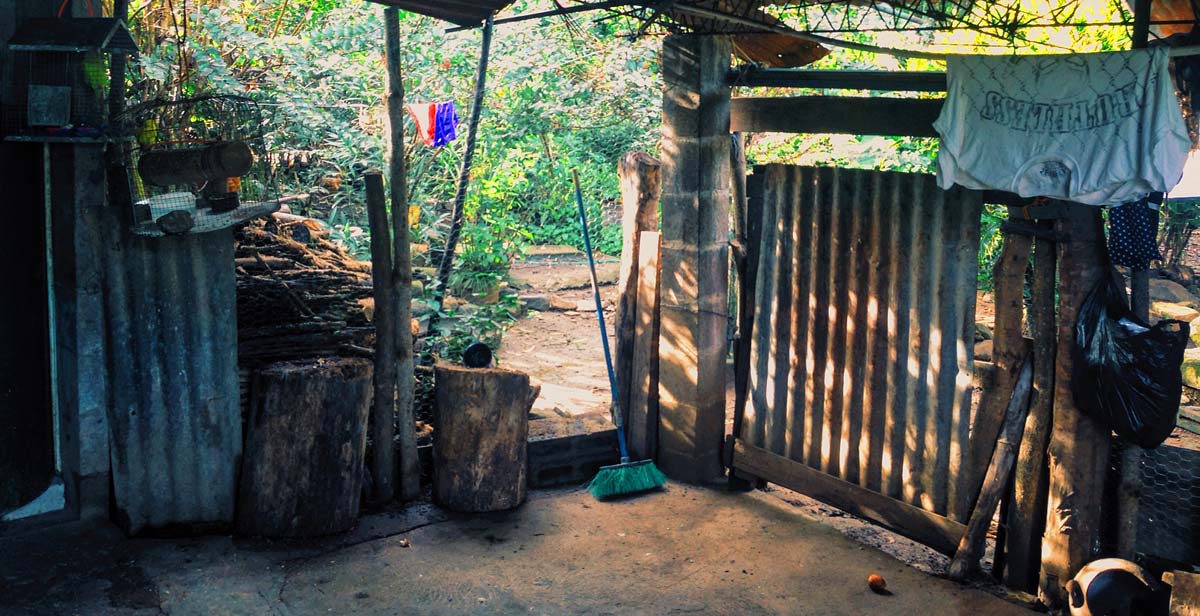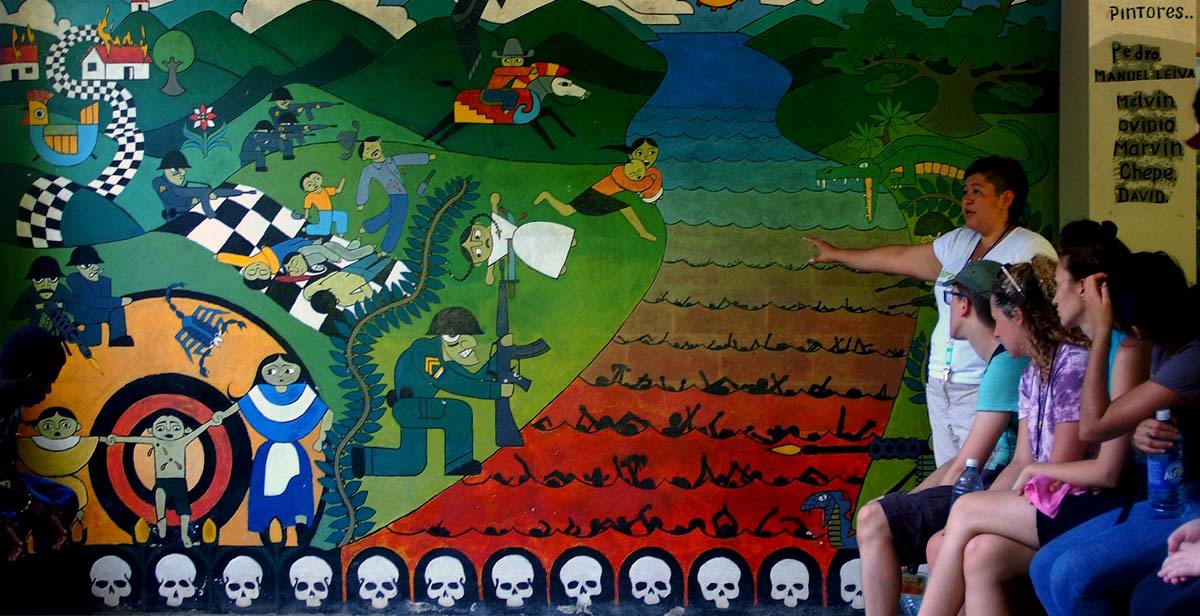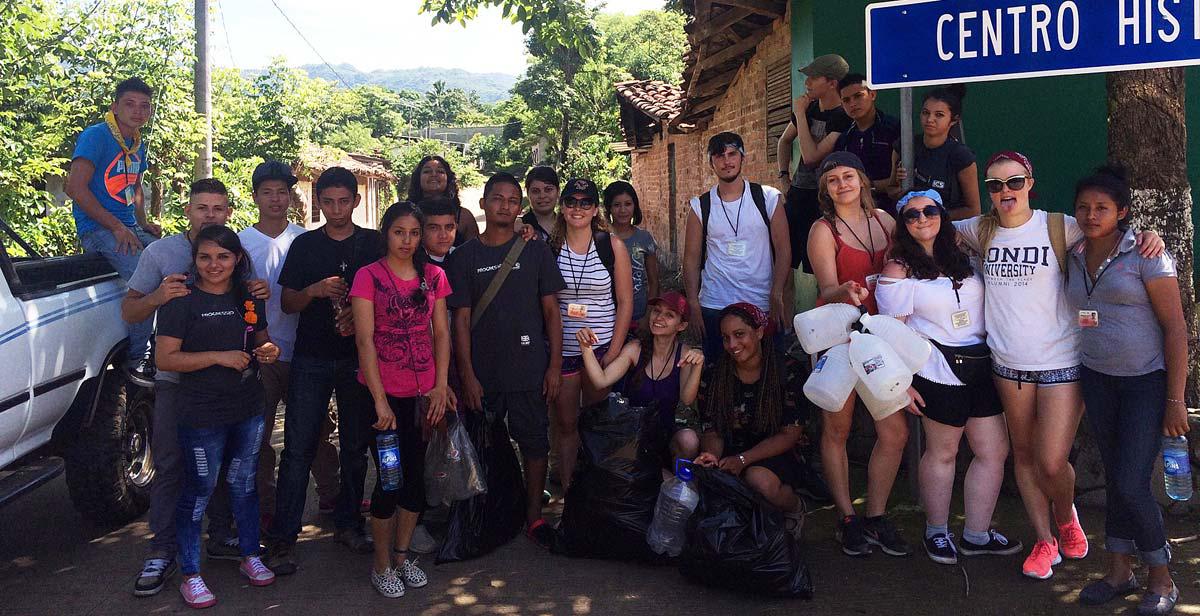Having spent four weeks in Arcatao now, we have settled into our surroundings. The weather is still very hot and sunburn has become a taboo word amongst the paler members of our group. My favourite part of the day is the end, where we have a couple of hours in the evening to sit down with our host family and talk.
The house we are staying in is very simple; breeze block walls and a corrugated iron roof. We live with Evangelina, in an adjoining room that is next to her kitchen/living room/bedroom. This is connected by an open-air, paved walkway to her daughters’ home. Angelica lives here with her three children, Luiz, Omar and Paty as well as Paty´s two children.

As with almost every home in La Colonia, the area of Arcatao where we live (although in a town this small it is hard to believe that there are different provinces at all) the house was built after the armed conflict with the help of Manos Unidas, a Spanish non-profit organisation. In that sense the homes are very similar and follow a template design. However, every building in our road has its own unique character. Opposite is a gate constructed to look like a sun giving out rays, there is environmentally-conscious graffiti adorning the wall of one home and each house has brilliantly coloured lattices over the doors and windows to give every house a sense of individuality.
Like everywhere in Arcatao we have an entire menagerie of animals. There is Casper the dog, Dominga and Negra the cats, a pair of bright green parquets and an abundance of chickens. Like the people here, Casper has welcomed us into his home after a wary start, and now treats us as friends when we come back after a day of work.
“¡Buenas noches! ¿Cómo estás?”
“Bien, bien, ¿y tú?”
This is the beginning of our nightly battle with the Spanish language. Throughout it all, Evangelina, Angelica, Luiz, Omar and Paty have been nothing but patient, even as we struggle with a verb for the hundredth time. Their eagerness to talk to us and share their culture is very inspiring. Despite the devastating conflict that Evagelina and Angelica lived through, and where Evangelina lost her husband, the national pride and culture has remained resilient and every night we learn a new element of everyday life. Last week we helped to make some very interestingly shaped tortillas with Angelica, and we have talked about what they do in their spare time, including visiting a local swimming pool that is connected to the Sumpul river.

The removal of Wi-Fi and private rooms in the house creates a much more open environment. In the evening, we all sit together on seats that are woven from plastic-coated washing lines of different colours, discussing Paty’s work at the local high-school, sharing British and El Salvadorian values, culture, food, history and hobbies late into the night. Here that means 9pm, as we (and the rest of the household) begin our days at 5:30am.
I share my living room with poultry, and my knuckles are rough from hand-washing my clothes, but this experience has really opened my eyes to a whole different pace of life. A life where power-cuts can dictate when you say goodnight, and the local roosters become your alarm clock. Some things never change however, and the best drink when I come home is always a cup of tea made by Angelica, the only difference being it is cinnamon rather than English Breakfast.
Written by ICS volunteer Katherine Maynard



